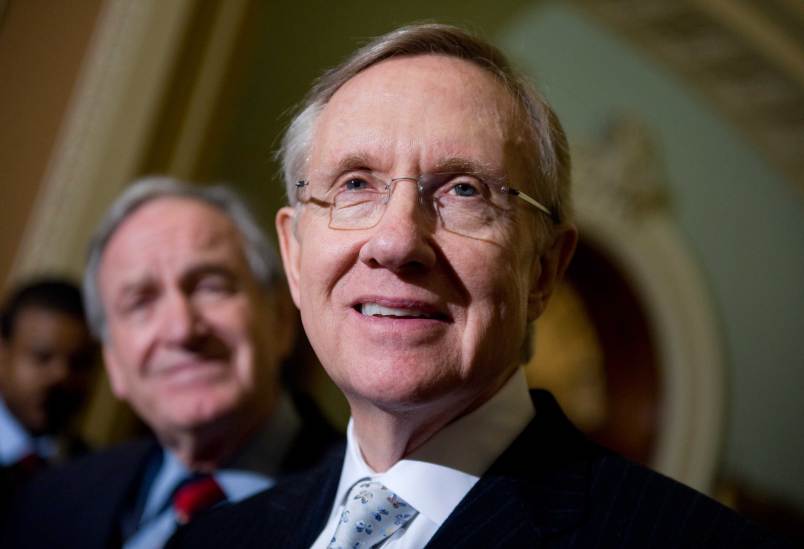At sundown on Friday, Democrats didn’t have a lock on health care reform. That changed late Friday night over a handshake between Sen. Ben Nelson (D-NE) and Senate Majority Leader Harry Reid. On Saturday, Reid signaled his confidence that his party was unified and ready to move forward by drawing the amendment process to a close and committing the Senate to voting on his bill. At 1 a.m. Monday morning, Reid proved he was right: All 60 Democrats voted to move ahead with reform, demonstrating with one procedural vote that they will pass major, historic, controversial legislation.
What stands between Senate Democrats and passing legislation now are a series of yet more procedural votes, which will likely take place over the next four days, culminating in a final up or down vote on reform, on Christmas eve at the latest.
That could come earlier, if Republicans accept what everybody knows: they’re in checkmate. Barring a truly shocking development, health care reform will pass–can pass today, in theory–and at this point the delays have nothing to do with Democrats coming to agreement, and everything to do with Republicans maximizing the amount of time they can squeeze out of the legislative process under the rules of the Senate.
Already, even swing-vote Democrats are talking about the bill as if it’s already passed. “The next step, of course, will be to see what happens with the conference,” said Sen. Ben Nelson.
Once the bill has passed, a new tussle will begin. Democrats in the House and Senate will have to put their two bills together and come out with a single piece of legislation that can win a majority in the House, and a supermajority in the Senate. And it could get ugly: The conference negotiations–likely to take place informally in discussions between Democratic leaders and the White House–will touch off a major ideological fight among progressives and the Democratic party.
Rounding up a filibuster-proof majority for health care reform required Reid to make major concessions to conservative Democrats in the Senate, and they are now insisting that they will filibuster the final package if those concessions are undone. But liberal members of the House, and progressive pressure groups won’t take that lying down. Because conservative Democrats have more leverage than do their progressive counterparts–because each one has the power to kill the legislation, and have been clear that they will if the bill moves significantly to the left–the smart money is on House liberals being asked to swallow a bill that doesn’t contain many of the provisions they value the most. Particularly, the public option.
And that will widen an already yawning rift between the progressive base and the White House and Democratic leadership. How that all shakes out–what liberals get in return for accepting a less progressive bill, who decides to support the bill, what the outside groups do, and how the party responds–is where the action will be in the weeks ahead.






